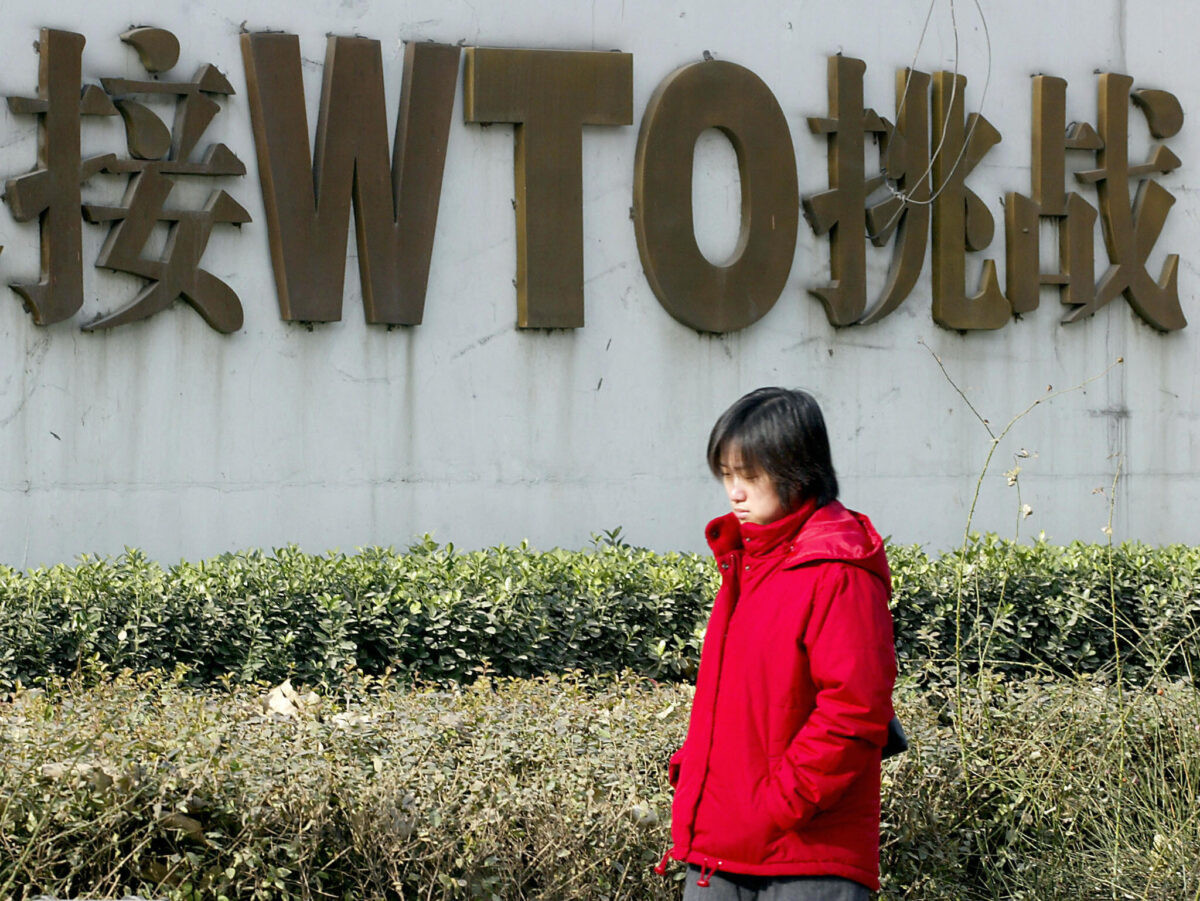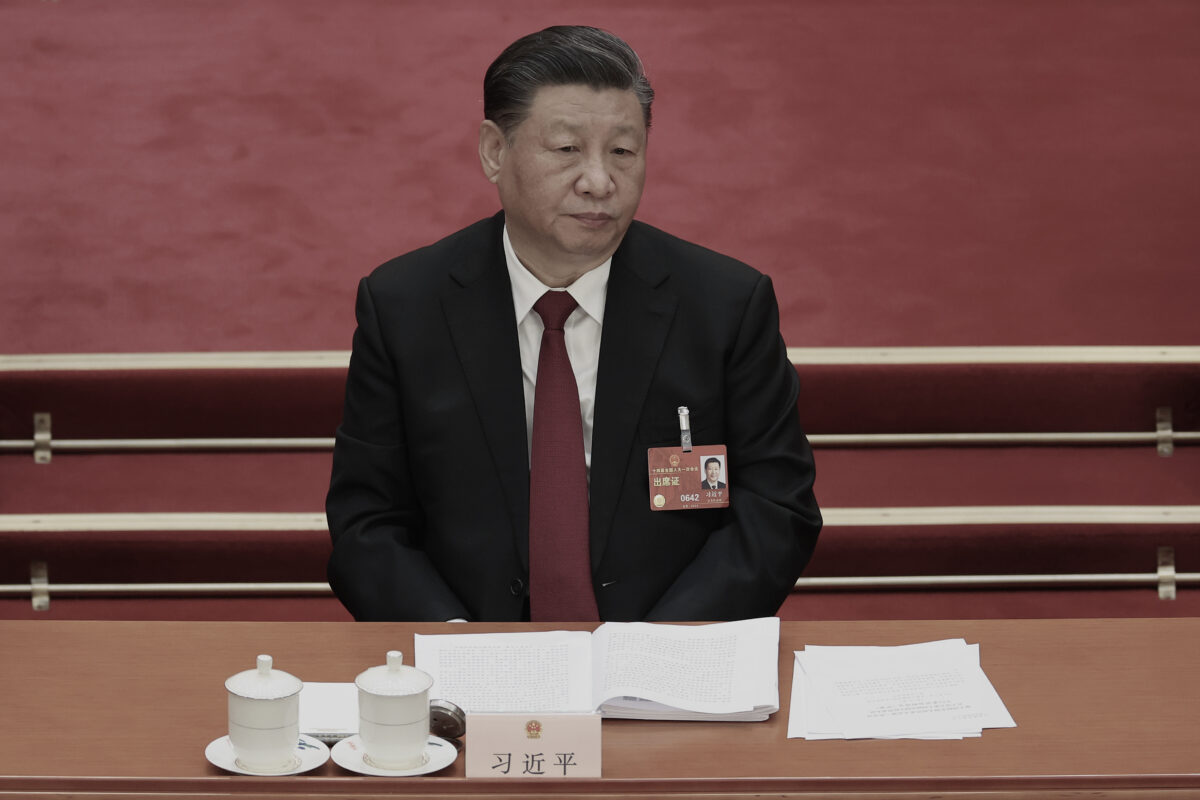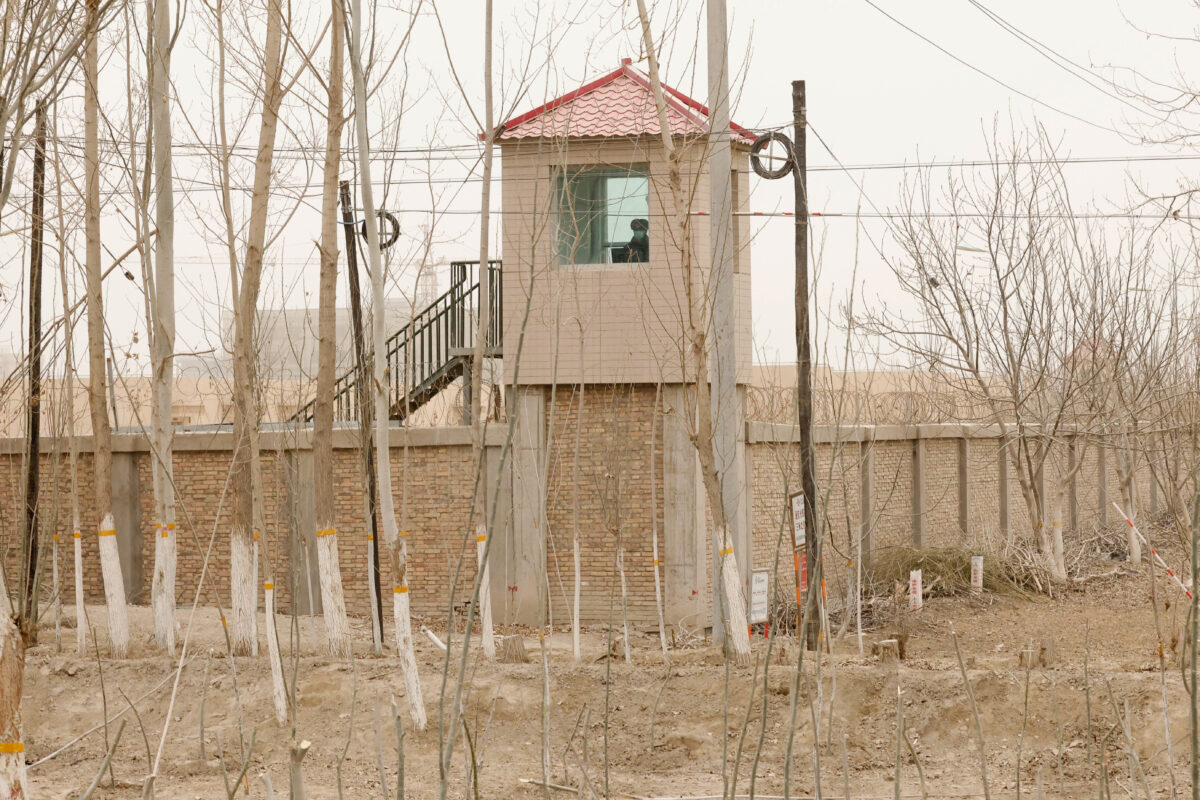
The Western strategy of decoupling trade negotiations from human rights abuses allowed the Chinese communist regime to ratchet up its repressive policies against religions and people of faith, said a U.S. religious freedom official, calling this policy a “strategic blunder.”
Nury Turkel, chairman of the U.S. Commission on International Religious Freedom (USCIRF), said the commission’s 2023 annual report on international religious freedom (pdf) highlighted China once again for violations of religious freedom and religious persecution.
Since 1999, China has been recommended by USCIRF to the State Department for designation as a “country of particular concern”(CPC) due to its deteriorating record on religious freedom, Turkel said in an interview for EpochTV’s “American Thought Leaders” program.
This CPC status is assigned by the State Department to countries that “commit systematic, ongoing, and egregious violations of religious freedom,” according to the commission’s website. The State Department can impose sanctions or take other action on a designated country.

 A Chinese woman walks pass a billboard boasting of China’s World Trade Organization (WTO) membership along street in Beijing on Dec. 19, 2003. (Goh Chai Hin/AFP/Getty Images)
A Chinese woman walks pass a billboard boasting of China’s World Trade Organization (WTO) membership along street in Beijing on Dec. 19, 2003. (Goh Chai Hin/AFP/Getty Images)Turkel believes that an essential factor that contributed to the escalation of religious repressions in China was delinking human rights from the 1990s trade negotiations facilitating China’s accension to the World Trade Organization (WTO).
“It’s a strategic blunder in multiple ways,” the chairman said.
Some in the government, starting from the presidency of George H. W. Bush, had good intentions, believing that admitting China to the WTO would help the Chinese people and China to become economically prosperous and improve technology and education in China, Turkel asserted.
“The policymakers thought that China would become one of us, or [a] member of the free world—the opposite has happened.”
“Instead of us changing them, they are changing us,” Turkel said.
As a result, business interests and American global interests had a much more important role than people’s rights, Turkel said.
“That made it even more difficult to advocate religious freedom for repressed [and] oppressed religious groups, like the Falun Gong practitioners or Tibetan Buddhists, Chinese Catholics, and Uyghur Muslims.”
To the Chinese Communist Party (CCP), two things are very important: economic development and the public perception of the regime, Turkel said.
Delinking human rights from the trade negotiations took that one important factor—human rights—off the table, he said. Therefore, the regime continues its abuses and persecution with impunity, he added.
The international community bears some responsibility for helping the Chinese regime to develop from a religious persecutor and human rights abuser into a “genocidal regime,” Turkel said.
One reason for the war on people of faith carried out by the CCP is that the “Chinese communist leadership sees people of faith as a potential threat for political upheaval,” Turkel said.
The second reason is the CCP perceives religious practitioners as a group of people “showing signs of disloyalty to the party,” which makes the CCP leadership believe that they will eventually undermine the Communist Party’s power, though it is not said publicly, Turkel explained.
The Chinese regime paints “rosy pictures” of its treatment of people of faith, Turkel continued.
“They have a nicely written constitution. They have religious affairs regulations, but that has been only in paper.”


Since rising to power in 2012, China’s leader Xi Jinping has floated an idea of “foreign encirclement,” which he treats as a threat to the country, Turkel said.
Xi considered the sanctions imposed by the United States government, including the Uyghur Forced Labor Prevention Act, as a form of foreign encirclement, Turkel added.
The Uyghur Forced Labor Prevention Act is a law enacted in 2021 that bars importing to the United States goods that have been produced using forced labor of Uyghurs or other persecuted groups in Xinjiang.
The Chinese regime defines foreign encirclement as a foreign influence and counts the following concepts as forms of foreign influence: religious freedom, freedom of assembly, freedom of worship, and teaching the faith to the next generation, Turkel said, adding that these freedoms are also considered “a national security threat” by the Chinese leadership.
The national security strategy of communist China calls specifically to take preemptive action, with or without justification, and if necessary, with a brutal method, Turkel explained.
The CCP treats people of faith as though they have a mental illness or carry an infectious disease, he said, adding that the view of the CCP is that “this disease needs to be cured in order to prevent it from spreading or metastasizing on the population.”
This is why Falun Gong practitioners in China are often sent to mental hospitals, and millions of Uyghurs and Tibetans are being subjected to indoctrination or so-called “reeducation,” Turkel pointed out. “The reeducation is a code word for human reengineering. And this is how they have been accomplishing that preemptive treatment method.”
When a country respects people’s rights to practice their religion or adhere to their spiritual beliefs, it will naturally achieve social stability, harmony, and peace, Turkel said.
When a country suppresses religious freedom, it needs to spend money on domestic security and police forces, Turkel said. China spends more money on domestic security than on the national defense, he added.
“Rounding up religious practitioners or sending them to [a] mental hospital or engaging in organ harvesting is not the way to deal with your own population,” he said.
Turkel recommended that the United States, Japan, South Korea, Australia, New Zealand, and the European Union should revisit their China policies and come up with coherent strategic policies to stop these egregious human rights violations in China.
Starting with the Trump administration, people understood the need to change ways of dealing with communist China, Turkel noted, but this is only recognizing the symptoms.
“There has not been a prescription to cure the problem,” he said.

 A security person watches from a guard tower around a detention facility in Yarkent County in northwestern China’s Xinjiang Uyghur Autonomous Region on March 21, 2021. (Ng Han Guan/AP Photo)
A security person watches from a guard tower around a detention facility in Yarkent County in northwestern China’s Xinjiang Uyghur Autonomous Region on March 21, 2021. (Ng Han Guan/AP Photo)Among the groups specifically targeted by the Chinese regime, Turkel listed Uyghur Muslims, whose genocide is still underway. About 3 million Uyghurs, including religious leaders, have been detained in concentration camps, where they undergo political indoctrination “day in and day out” and are being forced to denounce their God, the chairman said.
Another persecuted religious group, Tibetan Buddhists, are also forced to undergo brainwashing sessions, Turkel said. Their Panchen Lama, the second highest spiritual leader, has been missing after being kidnapped as a child by Chinese authorities in 1995.
The Falun Gong practitioners are a specific target for the persecution that has never loosened up, the chairman said.
The 2023 USCIRF report cites that in 2022, among Falun Gong adherents, there were 172 documented deaths due to the persecution, 7,331 cases of harassment and arrest, and 633 prison sentences.
Falun Gong, also known as Falun Dafa, is a spiritual practice involving meditative exercises and moral teachings rooted in traditional Chinese beliefs in body and mind improvement. It was introduced to the public by its founder, Li Hongzhi, in 1992 and is now practiced in more than 100 countries.
Falun Gong has been violently persecuted since 1999 when the Chinese communist regime unleashed a bloody campaign aimed at eradicating the faith.
The Chinese regime’s targeted attack on the Catholic community is of equal importance, Turkel said.
“The Catholic Church around the world, including the Vatican, has not shown a willingness to make it better for the Catholics in China.”
The bishops in China are not Catholic bishops, and they have not been approved or endorsed by the Vatican despite an agreement between China and the Vatican, Turkel said.
The China–Vatican agreement, originally reached in 2018 and renewed twice in 2020 and 2022, remains secret and controversial.
“We only know one provision, which is that China agrees with Vatican’s involvement in the bishop appointment,” Turkel said. “Instead, they’re forcing the Chinese bishops to sign up a pledge of allegiance to the Catholic Patriotic Association.”
The Catholic Patriotic Association in China is a regime-controlled Catholic Church separated from the Vatican.
Turkel said he had been sanctioned by the Chinese regime for his service to the American people as the USCIRF chair. Due to these sanctions, Turkel was banned from going to China, so he could not visit his parents living in China and pay respect to his late father.
The regime imposed sanctions on him and three other commissioners of the USCIRF in retaliation for the sanctioning of Chinese officials by the United States government under the Magnitsky Act (pdf), a law that imposes sanctions on foreigners for human rights abuses, Turkel explained.
Moreover, the Chinese regime, in an attempt to silence him, does not allow Turkel’s mother to leave China and reunite with her American family, the chairman said. Despite that hardship, his parents have never expressed any concern or regret due to their son’s human rights advocacy work.
Turkel stated the regime could not silence him.
“I have a historical task assigned to me,” he said. “I will continue to speak out through my tears.”
Eva Fu and Terri Wu contributed to this report.




Discount Applied Successfully!
Your savings have been added to the cart.